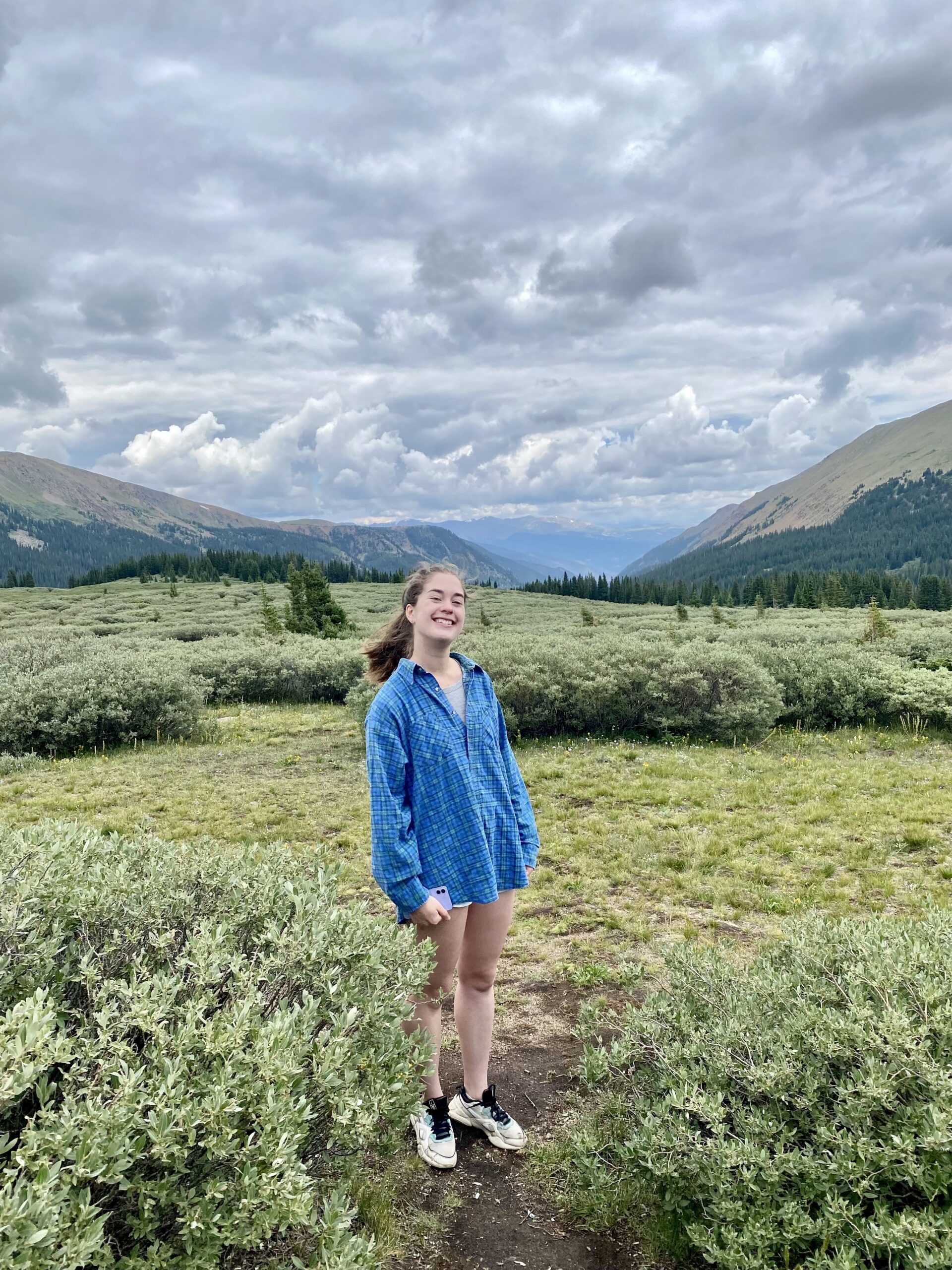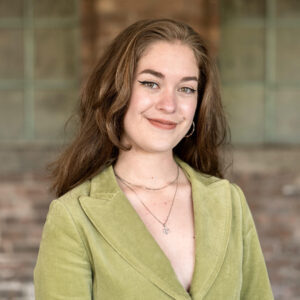Elijah is told to wait for G-d on the mountain side. A great wind whips down the side of the mountain and shatters ancient stones like glass. An earthquake rips the land into pieces, and a great fire smelts the earth into ashes. Elijah watches, terrified. G-d is in none of these awesome feats, emerging only after the carnage, in the still, small voice that compels Elijah to cover his eyes and emerge from his hiding place to hear G-d’s wisdom.
I’m afraid to say I’ve never felt completely Jewish. I can recite the Lord’s Prayer with the same muscle memory as the Shema. I never had a bat mitzvah. My house always lit the Hanukkah candles next to our Christmas tree and the only services I ever attended were held at camp. But throughout my life there are crystalline moments that spin into infinity and connect me inextricably to my Jewish family, friends, and community.
The first time I blessed the Sabbath candles in my camp’s rowdy mess hall.
A family friend’s wedding and their pomegranate-laden chuppa.
Meeting the smiling eyes of an expectant older man on a Crown Heights side-street and spending thirty seconds to pray with him over a particularly huge etrog.
And most of all, the real, quiet feeling that something larger than me demands attention and reverence. The feeling that makes me want to cover my eyes like Elijah and accept a greater wisdom.
When I came to New Voices in September of this year, I had been addicted to the wind, the earthquake, and the fire for months. My eyes were peeled to the heat and dust and awesome passions that had come to define my every day. I had been flung out to sea by circumstance and the chemical make up of my brain and the act of loving quickly. I was exhilarated by the spectacle of my life and exhausted by the idea of gaining stability. I was content to let myself waste into any comfort that was afforded to me. In some ways, I was immeasurably happy, but also the most ill I have ever been. I found solace in the heights of my panic and couldn’t be talked down. I questioned everything about myself. I was terrified of losing the few things I cared about. I didn’t want to work because I couldn’t work. I was in love and out of school and away from my dearest friends and family and broke. I realized hazily that I hadn’t written anything in months.
I couldn’t tell you what editorial meetings felt like before the war. I wrote some sweet reviews, edited words from bright journalists, and made plans for charming fundraisers and grant proposals. I diligently kept up an editor’s log, penning descriptions of my workspace and docket and coffee shop order. I took a vacation for my birthday with my partner. I turned 25 on a turquoise water beach, freezing cold, feeling the happiest I’ve ever felt.
The next day the world was ripped in half.
New Voices editorial meetings became four hour sessions of clasped hands, slapping the coffee stained tables of various cafes to emphasize our points. It became incredibly clear that our work illuminating the plethora of Jewish voices on campuses across the US was essential. As the days ticked by and the death toll ticked up and our emails filled with opinion pieces and poems and tirades and threats, I felt the crystallization of another fractal of my Jewish experience. Unending and sharp, this moment joined my collection of memories that defined my Judaism. Our weekly editor’s logs shifted from lighthearted and optimistic to dire in content and stark in tone:
“I am thankful for the regularity of our work but the content is incredibly difficult,” I wrote. “Writing about things other than the war is like trying to push financial policy after 9/11, it’s important but who’s really paying attention? We’ve had pitches slip, reporters not get back to us – it feels like, and maybe rightfully, the war is all one should/could be able to write about.
It also… just keeps going.”
Every statement we wrote, every poem we assessed, and every comment we flagged is as embedded in my muscle memory as any prayer. At the end of some of our meetings, I would notice, tiredly, that I finally had a reason to cover my eyes.
Metaphorical disaster always pales in comparison to true atrocity, and in the wake of the war I dumbly went through the motions of getting a job, securing a therapist, and trying to hold onto my relationship. The first two worked, the third couldn’t. New Voices, personified and metaphorically, was there for me when all I could do was cry, giving me a semblance of control over my emotions through the routine of editing in person and talking, still clasping hands.
I went to my first service in Brooklyn three days after my breakup with a blazingly smart cohort of former and current editors, their friends and inspirations in tow. Watching families and lovers and old women davening in a beautiful room, hearing the bountiful wisdom of young queer Jewry, and drinking tea from stooped china in the warmth of a writer’s home sent me reeling.
In that moment, still spiraling through the horrors of the war, petrified without the person who had held my hand at the start of the violence, I had never felt more alone. But looking back with dryer eyes, I can see in that evening another fractal of love and community that will always bond me to my religion and culture. This magazine brings together people who are meant to be brought together. It makes sense that the former editor who helped me sharpen my first investigation would be the one telling me that love is transitory and has to start with myself. It makes sense that the brilliant soul who interviewed me this summer from my boyfriend’s basement would be the one smiling proudly in our final meeting as I pitched the idea for this final essay. It makes sense that my time with New Voices started with an urgency to write large, explosive pieces to detract from how unhappy I was and ended with me finally being able to quietly confront my reality – comfortable, if not healed, in my own skin.
It can feel daunting to approach what makes us afraid, especially when you’ve spent months, or years, or generations running from it. As much as I have grown over these past few months, I still can find myself in a dead sprint away from that which makes me feel helpless. I run from the fear I felt reading the news on the drive home on October 8th, the fear of stumbling over childhood prayers in earshot of others, the fear that gripped me watching tanks line up at Gaza’s border, the fear of navigating my life without the person I cared about most. But my time in this position allowed me to look to my left and my right, and at my side I have seen a whole community of Jews, writers, lovers, thinkers, protesters and creators alike who are running in pace with me. And I have realized that we are indeed not running, but just keeping the momentum of all those who have come before us and those who will come after. To move collectively is not a sign of weakness, it is the very thing that will keep us alive.
When Elijah emerges from his hiding place and walks, shaking with eyes covered, through the desolation of the mountain, G-d does’t give him praise for overcoming his fear. He doesn’t give him any answers. The still, small voice simply asks, “What are you doing here?” There is not always an answer to this question, and in times where one loses stability or love, we can be too proud or terrified to admit that we don’t know. I can admit now that I don’t have that answer and I might not for quite some time. But I know I am happy to be moving towards it.

